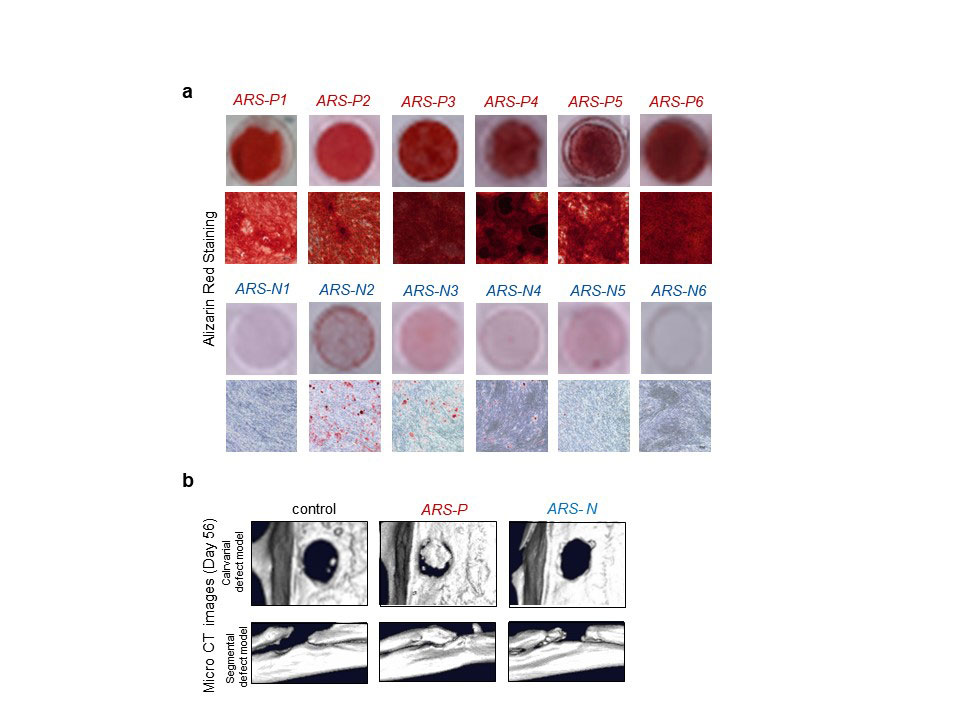Session Information
Session Type: Poster Session A
Session Time: 1:00PM-3:00PM
Background/Purpose: In this study, we describe the discovery of a new GSTT1 gene that promotes the osteogenic differentiation of adipose stem cells (ASCs). While adipose-derived stem cells have been used for regenerative medicine to treat intractable bone diseases including osteonecrosis of femoral head and large bone defects, the osteogenic potential of ASCs are dramatically discrepant depending on donors.
Methods: By performing RNA-seq analysis of ASCs from different donors, we identified genes that showed different expression between a group of donors that show good osteogenic potential and other group that showed poor osteogenic potential. A specific gene, GSTT1, which showed the largest difference in expression between the two groups, was identified. GSTT1 is a member of a protein superfamily that catalyzes the conjugation of reduced glutathione to a variety of hydrophilic and hydrophobic compounds. To date, there are no known studies related to the role of GSTT1 gene in bone regeneration.
Results: In vitro studies showed that the GSTT1 gene was associated with the enhancement of osteogenic differentiation of adipose stem cells. siRNA against GSTT1 reduced osteogenic differentiation of hASC clones that had good osteogenic potential, whereas GSTT1 gene overexpression by electroporation enhanced osteogenic differentiation of hASC clones that had poor osteogenic potential. GSTT1-transfected ASCs showed remarkable enhancement in the healing of critical size long bone defect created in immunosuppressed rats, compared with control vector-transfected hASCs.
Conclusion: GSTT1 may be applied in regenerative medicine for bone regeneration to improve osteogenic differentiation of ASCs. Also, the expression of GSTT1 gene in each clone may be used as a marker to pre-screen ASCs with good osteogenic for osteogenesis in cell-based treatments.
To cite this abstract in AMA style:
Lee E, IM G, Koh j. Discovery of GSTT1 Gene That Promotes Osteogenic Differentiation of Adipose Stem Cells [abstract]. Arthritis Rheumatol. 2022; 74 (suppl 9). https://acrabstracts.org/abstract/discovery-of-gstt1-gene-that-promotes-osteogenic-differentiation-of-adipose-stem-cells/. Accessed .« Back to ACR Convergence 2022
ACR Meeting Abstracts - https://acrabstracts.org/abstract/discovery-of-gstt1-gene-that-promotes-osteogenic-differentiation-of-adipose-stem-cells/

